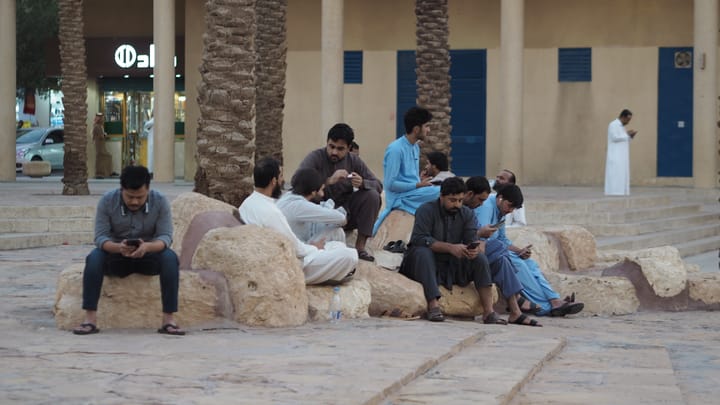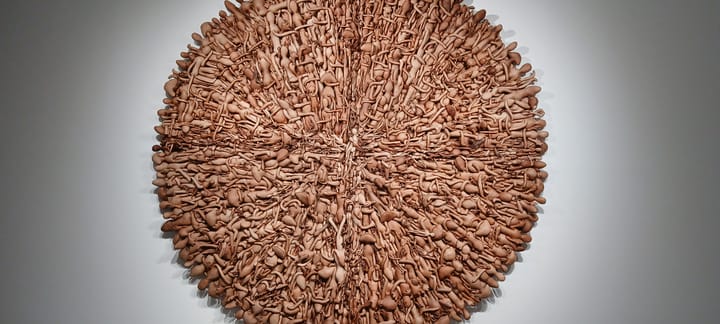excerpts from Writers and Missionaries, 2023, by Adam Shatz, on Richard Wright, strange order: . . . & others, ローラン・バルタース and the “risk” of universality
Wright explored his own “dark landscape,” describing two experiences that lay behind the creation of the novel. The first–an encounter with the “strangely familiar,” an idea that recurs throughout the book–took place in Chicago, shortly before his grandmother’s death in 1934. … he read a book that “miraculously linked my grandmother’s life to my own ijn a most startling manner”: Gertrude Stein’s Three Lives. Reading Stein’s story “Melanctha” in black vernacular speech at his grandmother’s flat,
“I suddenly began to hear the English language for the first time in my life! … But more than that; suddenly I began to hear my grandmother speak for the first time.”
Later, he read the story aloud in a basement on the South Side to a “group of illiterate, class-conscious Negro workers … and there were such howls of delight, such expressions of recognition, that I could barely finish.”
pp. 188-119
In an artful series of moves, he connects the “quality of my grandmother’s living” to a form of
music
she loathed as a
sinner's genre, the blues,
with their manner of
“freely juxtaposing totally unrelated images and symbols and then tying them into some overall concept, mood, feeling,” “a trait of Negro thinking and feeling.”
By imposing order, a strange order, on the fragments of a chaotic, ungovernable, intolerable reality,
the blues marks
“the advent of surrealism on the American scene.”
… a surrealism born of necessity, not from theory …
— p. 119
Richard Wright: The “young man who spurned the fetish religion of his people returns and finds that the religion is the only thing that he has to work with . . . So, not believing in the customs of his people, he rolls up his sleeves and begins to organize that which he loathes.”
Western imperialism’s great legacy among its former subjects,
[Wright argued]
was an intense racial consciousness.
— p. 127
“My positions is a split one. I’m black. I’m a man of the West . . . I see and understand the West; but I also see and understand the non- or anti-Western point of view. How is this possible? The double vision stems from my being a product of Western civilization and from my racial identity.” Wright did not see his “double vision” as a source of torment, as Du Bois had described “double consciousness” in The Souls of Black Folk. He considered it an intellectual asset, allowing him to “see both worlds from another and third point of view,” and to see the colonized as both “victims of their own religious projections and victims of Western imperialism.”
to which Fanon indirectly replied:
“It is true . . . that the drama of consciousness of a westernized Black, torn between his white culture and his negritude, can be very painful; but this drama, which, after all, kills no one, is
too particular to be representative:
the misfortune of the colonized African masses, exploited, subjugated, is first of all of a vital, material order; the spiritual rifts of the ‘elite’ are a luxury that they are unable to afford.”
— p. 129
from William Gardner Smith’s exile in Paris:
In the summer of 1946 Smith went to occupied Berlin as a clerk-typist with the 661st TC Truck Company. He spent eight months in Germany, and by August 1947 he had completed a draft of a novel, Dark Tide over Deutschland. Farrar, Strauss & Company paid him $500 for the manuscript and published it in 1948 under the title Last of the Conquerors. A review in the New York Times described the novel—the story of a love affair between a black soldier in Berlin and a German woman, with strong echoes of A Farewell to Arms—as
"a revealing example of the tendency of minority groups . . . to project themselves into a fantasy world in which they enjoy rights that are inherently, if not actually, theirs."
–p. 155
[Roland Barthes]
dedicated the first volume of his Critical Essays, published in 1964, to his lover François Braunschweig, an eighteen-year-old law student— but the “political liberation of sexuality” struck him as “a double transgression, of politics by the sexual, and conversely.” His own morality, he wrote, was “the courage of discretion”: “It is courageous not to be courageous.”
— p. 208
Barthes had fallen in love with Japan after his first visit in 1966. But he was the first to acknowledge that the “country I am calling Japan” was an imaginary country, and he was happy for the actual place to remain elusive. (As he confessed in a letter written in 1942, “I have no curiosity about facts, I am only curious—but fanatically so—about humans.”) Nothing pleased him more than the “rustle of a language he did not understand: at last, language was freed from meaning, from the “stickiness,” and converted into pure sound. Not surprisingly, Barthes’s favorite contemporary artist was Cy Twombly, whose paintings resembled illegible scribbles—a style that Barthes, an amateur artist, emulated in his own drawings.
— p. 209
. . .
Religion only reinforced the notion that everyday problems were in the hands of a higher authority. "Our ecological problems are also metaphysical," he said. "People who are waiting for the end of the world can't be bothered with the present."
--p. 41
…
The idea that education is “best advanced by focusing principally on our own separateness, our own ethnic identity, culture and traditions” struck [Said] as a kind of apartheid pedagogy, implying that “subaltern, inferior or lesser races” were “unable to share in the general riches of human culture.” Identity was “as boring a subject as one can imagine”; what excited him was the interaction of different identities and the promise—the “risk”—of universality. This vision lay at the heart of the youth musical ensemble he helped to establish, the West-Eastern Divan Orchestra. The name alluded to Goethe’s West-östlicher Diwan, a collection of poems inspired by the Persian poet Hafez. The orchestra’s co-founder was the conductor and pianist Daniel Barenboim, an Argentine-Israeli Said had met by chance in London in 1993, just as his relationship with Arafat was falling apart. Said described the meeting as “love at first sight.”
— p. 97


